· The History of Music ·
The history of music is a fascinating journey through time, reaching back to the earliest roots of humanity. In its infancy, music was an elemental expression marked by simple and primitive sounds generated through percussion and vocals. Over time, ancient civilizations contributed to the development of music, integrating it into religious rituals, ceremonies, and social events. The music of ancient Greece, for example, played a crucial role in music theory and laid the foundation for concepts such as the musical scale and harmony.
As history progressed, music continued to evolve with the advent of classical music in the Middle Ages and the Renaissance, followed by the emergence of styles such as Baroque, Classicism, and Romanticism. The 20th century marked a turning point with the rise of popular music, from jazz to rock, hip-hop, and beyond. The technological revolution in recent decades has radically transformed the production, distribution, and consumption of music, propelling emerging genres and unique fusions. The history of music is, therefore, a rich and diverse narrative that reflects human creativity throughout the centuries.
50s Music
| The 1950s witnessed a musical revolution that left an indelible mark on the history of popular music. This period was characterized by the transition from jazz and blues to the emergence of rock and roll, a genre that fused elements of African-American music with influences from country and rhythm and blues. Iconic figures such as Elvis Presley, Chuck Berry, and Little Richard became pioneers of this new, energetic, and rebellious sound that captured the imagination of the youth of the time. The music of the 1950s also saw the consolidation of pop music, with artists like Frank Sinatra and Nat King Cole dominating the charts. Additionally, the rise of doo-wop music, characterized by melodic vocal harmonies, added a unique dimension to the musical landscape of the era.
This period also witnessed the emergence of prominent artists in the rhythm and blues and gospel scenes, such as Ray Charles and Aretha Franklin, who made significant contributions to the development of African-American music. Television and radio played a crucial role in spreading the music of the 1950s, bringing the new sounds to homes around the world. Collectively, this decade laid the foundation for the ongoing evolution of popular music, establishing trends and marking the beginning of an era in which music became a dynamic reflection of society and culture at the time.
|
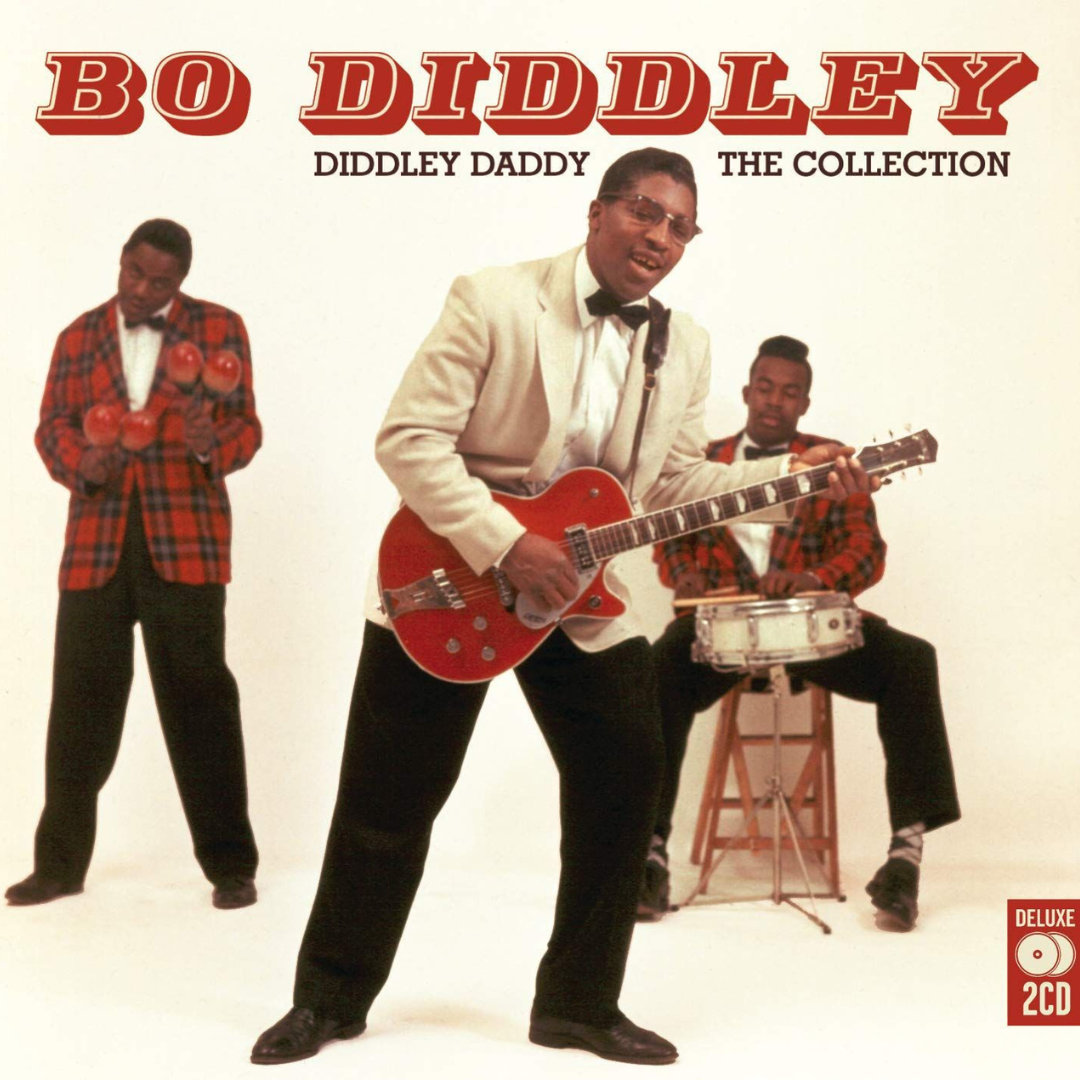
60s Music
|
The 1960s were a pivotal decade in the history of music, characterized by a cultural and social effervescence that had a lasting impact. This period witnessed the emergence of the counterculture movement, with music playing a central role in expressing the ideas and values of the time. Rock and roll continued to evolve, giving rise to subgenres such as psychedelic rock, folk rock, and garage rock. Iconic artists like The Beatles, Bob Dylan, The Rolling Stones, and Jimi Hendrix emerged as leaders of this musical revolution, experimenting with innovative sounds and lyrics that reflected the quest for freedom, peace, and social change.
In addition to rock, the 1960s saw the rise of other musical genres. The Motown movement in Detroit produced an unparalleled catalog of soul and rhythm and blues music, with artists like Marvin Gaye, Stevie Wonder, and The Supremes dominating the charts. Similarly, the emergence of surf music on the West Coast of the United States, personified by groups like The Beach Boys, added a vibrant and sunny dimension to the musical landscape. The music of the 1960s was not only a soundtrack for the time but also played a crucial role in shaping the cultural and political narrative of a generation that sought to transform the world through creativity and artistic expression.
|
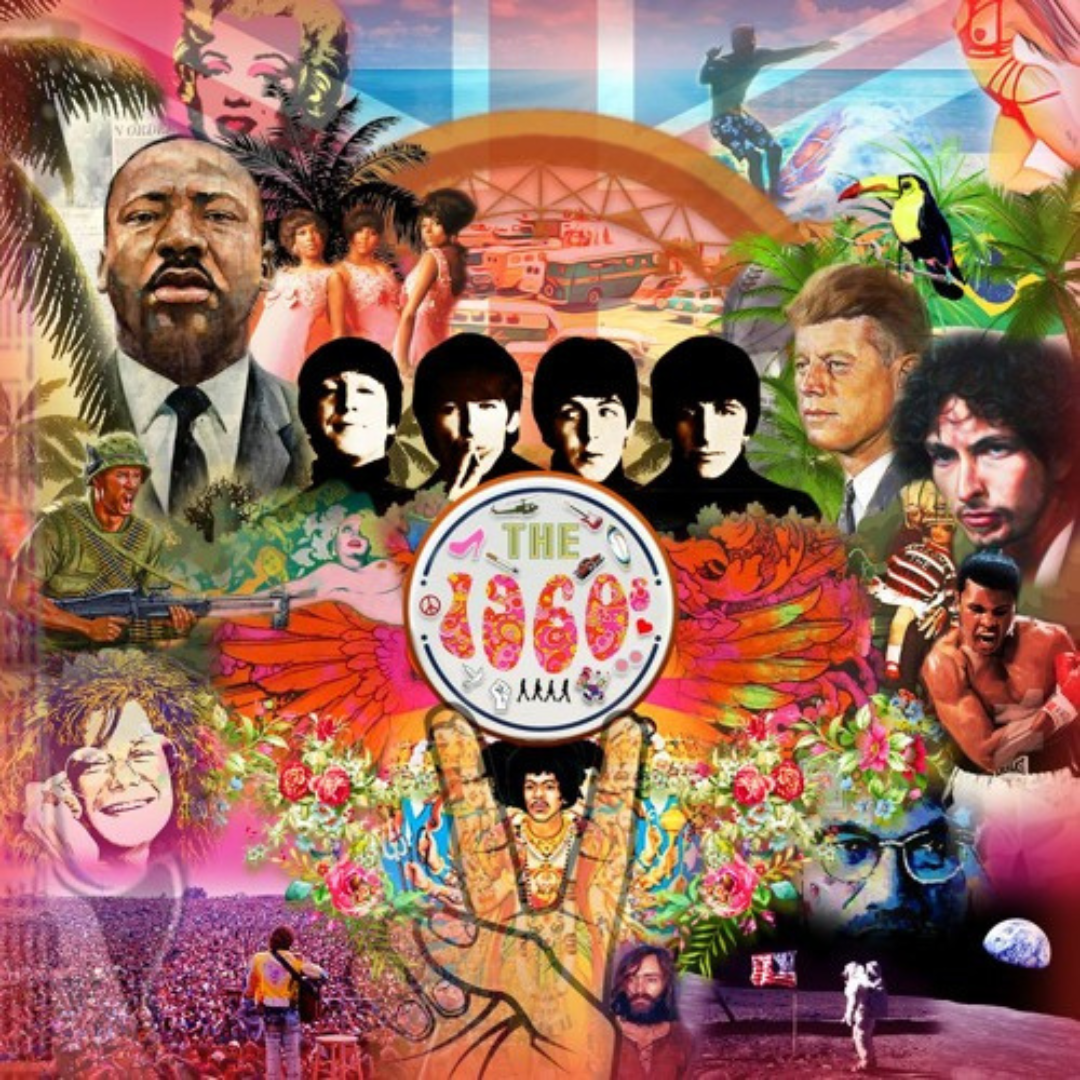
70s Music
|
Los años 70 fueron una época de gran diversidad musical, con la emergencia y consolidación de varios géneros que han dejado una marca indeleble en la historia de la música. El rock progresivo floreció con bandas como Pink Floyd y Yes, explorando estructuras musicales complejas y conceptos artísticos, mientras que el punk rock, representado por grupos como The Ramones y Sex Pistols, irrumpió con su energía cruda y actitud rebelde. Además, el auge del disco marcó la década con fenómenos como la música de Bee Gees y la fiebre de la pista de baile, simbolizada por el éxito estratosférico de la banda sonora de "Saturday Night Fever". Los años 70 también presenciaron el nacimiento del hip-hop en las calles de Nueva York, un género que se convertiría en una fuerza cultural poderosa en las décadas siguientes.
La música de los años 70 no solo estuvo definida por la diversidad de géneros, sino también por la creciente influencia de la música global. Bandas de rock británicas como Led Zeppelin y The Rolling Stones alcanzaron fama mundial, mientras que la música latina, especialmente la salsa y la música tropical, comenzó a tener un impacto significativo en la escena internacional. Este período vibrante y ecléctico dejó un legado duradero, influyendo en las décadas siguientes y demostrando que la música no solo refleja la sociedad de su tiempo, sino que también tiene el poder de moldearla.
|
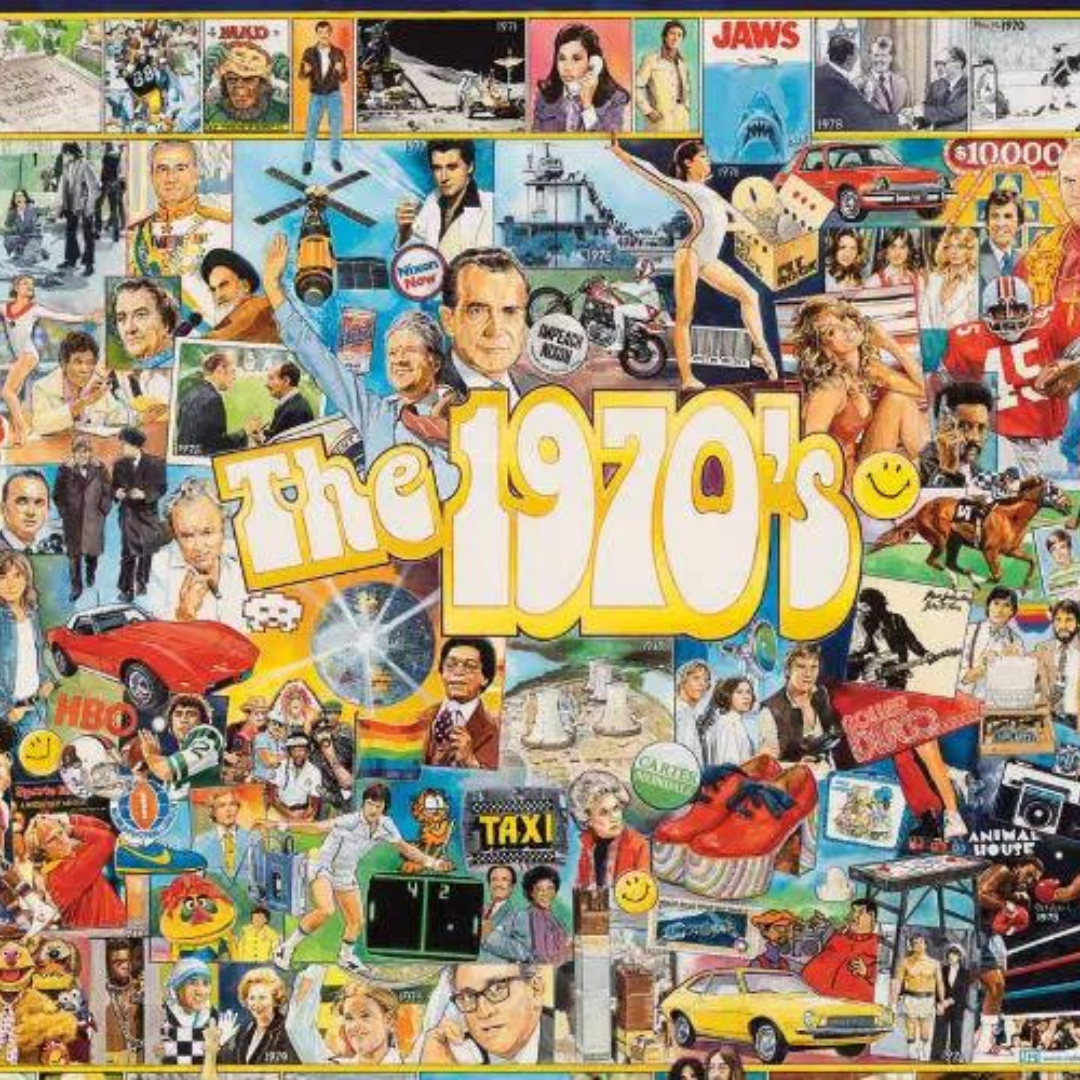
80s Music
|
The 1980s were a vibrant and eclectic musical era that left an indelible mark on popular culture. In terms of genres, the '80s were known for their diversity, ranging from the rise of synthesized pop to the emergence of hip-hop and the boom of stadium rock. Artists like Michael Jackson dominated the pop scene, propelling his album "Thriller" to unprecedented success, while rock bands such as U2, Queen, and Guns N' Roses filled stadiums around the world. The decade also witnessed the fusion of musical styles, with dance and electronic music gaining prominence through artists like Madonna and electronic music pioneers such as Depeche Mode and Kraftwerk.
The '80s also saw the birth and growth of hip-hop as an influential and culturally relevant musical genre. Pioneers like Run-D.M.C. and Grandmaster Flash introduced the world to scratching and the art of rap, laying the groundwork for modern rap. The music of the '80s was not only defined by its distinctive sound but also by its unique visual aesthetic, with extravagant fashion and innovative music videos becoming an integral part of the musical experience. In summary, the '80s were a dynamic era in which music was not only heard but also seen, felt, and experienced in a wide variety of forms.
|
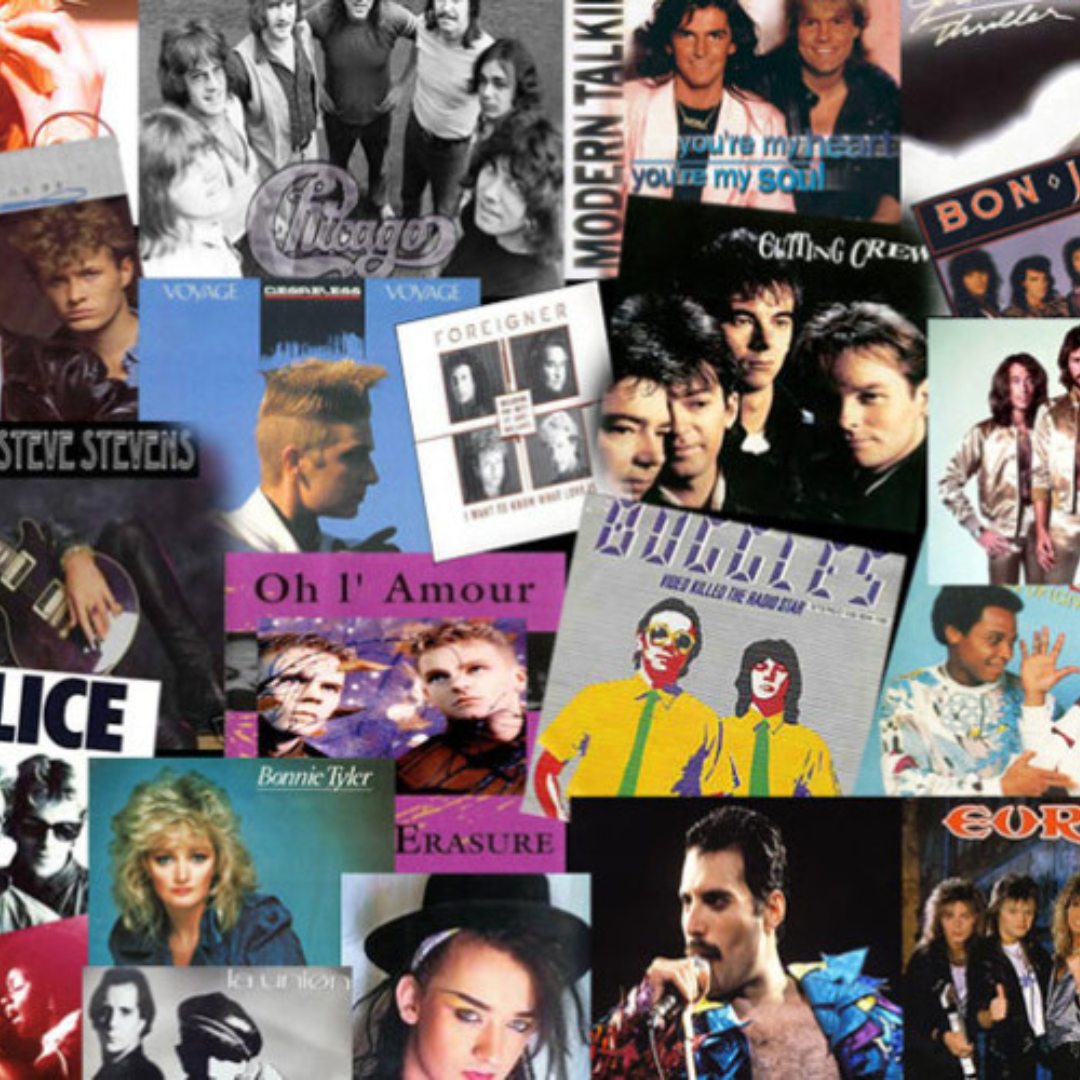
90s Music
|
The 1990s was a period of musical diversity that spanned a wide range of genres and styles, defining an era characterized by experimentation and the fusion of sounds. The emergence of hip-hop as a dominant cultural phenomenon marked one of the most significant milestones of the decade. Artists like Tupac Shakur, The Notorious B.I.G., and groups like Wu-Tang Clan and N.W.A. solidified hip-hop as a powerful medium of artistic expression addressing social, political, and personal themes. Simultaneously, the rise of grunge in the rock scene brought with it a raw aesthetic and an anti-establishment attitude, personified by bands such as Nirvana, Pearl Jam, and Soundgarden. These contrasting genres coexisted, and the decade also witnessed the popularization of alternative pop with artists like Nirvana, Radiohead, and Beck, exploring sounds outside the traditional pop conventions.
The 1990s also saw the rise of electronic music and the boom of rave culture. Genres like techno, house, and trance became the soundtrack of the underground scene, with festivals and massive events bringing together electronic music enthusiasts from around the world. Additionally, artists like The Prodigy and Daft Punk significantly contributed to expanding electronic music to broader audiences. In summary, the music of the 1990s was a melting pot of creative expressions, capturing the essence of a decade where the plurality of sounds and styles defined the musical experience for a generation.
|
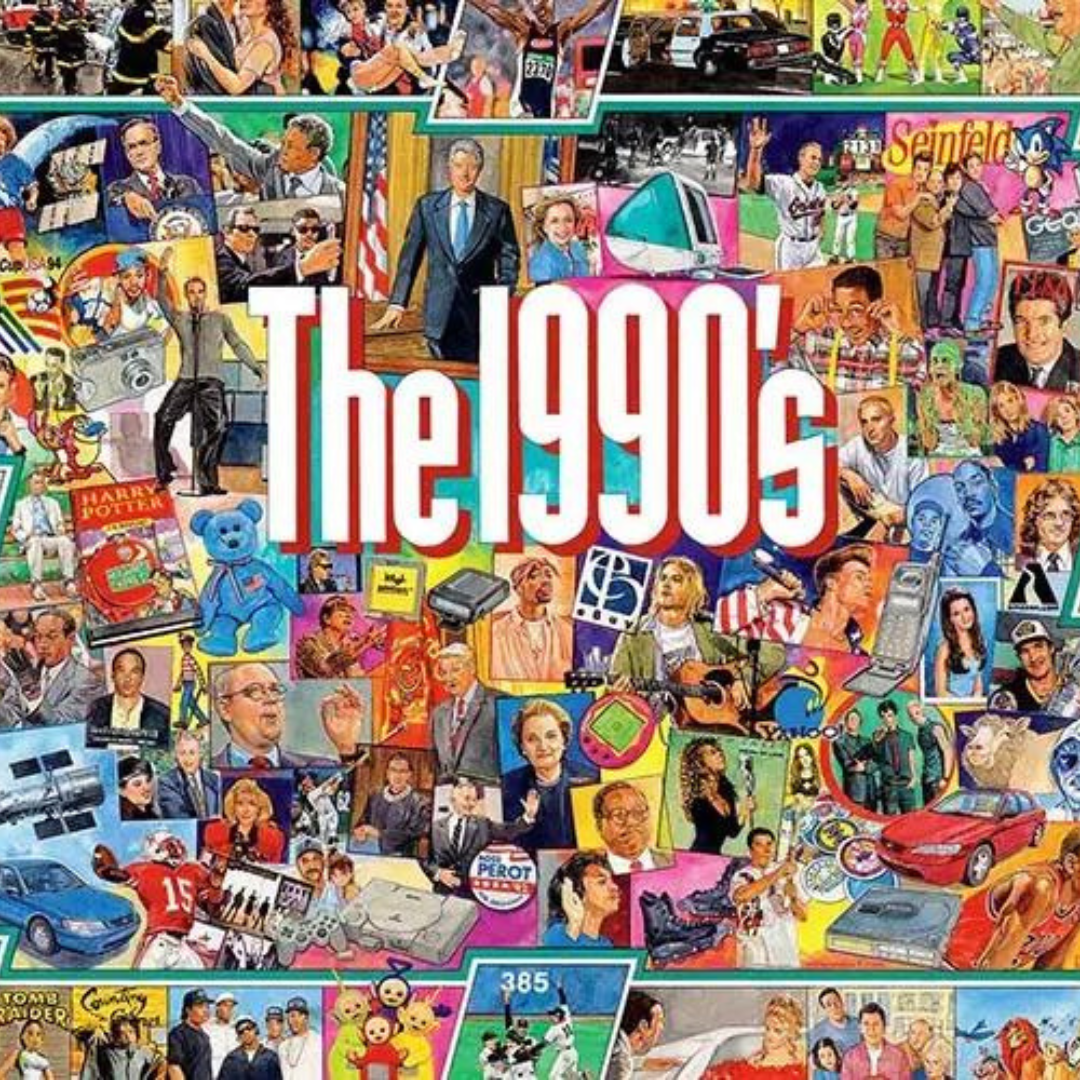
2000 Music
|
The 2000s were a time of diversification and globalization in the musical landscape, characterized by the fusion of styles and increased accessibility through the expansion of the internet and the proliferation of streaming platforms. Pop dominated the charts with artists like Britney Spears, *NSYNC, and Destiny's Child, while hip-hop experienced a significant resurgence with figures like Eminem, Jay-Z, and OutKast. Meanwhile, alternative rock remained strong with bands like Linkin Park and Coldplay, offering a wide variety of options for listeners. Technology also enabled the creation of new genres such as pop-punk and indie rock, which gained popularity through the online viralization of music.
In addition to genre diversification, the music culture of the 2000s was shaped by phenomena such as music competition shows like American Idol, which propelled artists like Kelly Clarkson and Carrie Underwood to fame. The culture of digital downloads and the transition from physical formats to digital also defined this decade, marking a significant shift in how music is consumed and shared. In summary, the 2000s were a vibrant and dynamic period in the evolution of contemporary music, where technology and globalization played a crucial role in transforming the music industry.
|

2010 Music
|
The 2010s were a period of great diversity and change in the musical landscape. The rise of online streaming platforms radically transformed the way music was consumed and shared. Services like Spotify, Apple Music, and YouTube became the primary channels for discovering and enjoying new music, providing independent artists with a global platform to reach massive audiences. Additionally, the decade witnessed the fusion of musical genres, with artists challenging traditional categories and experimenting with a wide variety of styles, from electronic pop to indie folk.
Hip-hop emerged as one of the most influential and dominant genres of the decade, with artists like Kendrick Lamar, Drake, and Cardi B not only topping the charts but also challenging cultural and social norms through their powerful lyrics. Pop music also underwent an evolution, with the rise of artists such as Beyoncé, Taylor Swift, and Ed Sheeran, who left an indelible mark on popular culture. In summary, the 2010s witnessed an exciting and eclectic era in which music not only became more accessible than ever but also became a crucial medium for expressing the diversity and complexity of the human experience.
|

2023 Music
|
The year 2023 has witnessed a continuous transformation in the musical landscape, largely driven by technological advances and changes in audience preferences. The digital era has solidified its dominance, with streaming platforms such as Spotify, Apple Music, and others redefining the way music is consumed and shared. The diversity of musical genres has reached a peak, with artists from around the world merging styles and exploring new sonic frontiers. From the rise of genres like trap and reggaeton to the growing influence of electronic music, the musical landscape of 2023 reflects a blend of cultures and artistic expressions.
In addition to the fusion of styles, the music of 2023 has also been shaped by the social and political concerns of the time. Many artists have used their platform to address issues such as social justice, gender equality, and environmental sustainability, turning music not only into a form of entertainment but also a means of activism and social awareness. Social media and online platforms have allowed independent artists to gain visibility, democratizing access to the audience and fostering greater diversity of voices in the contemporary music scene. In summary, the year 2023 has been a fascinating period in which music continues to evolve as a dynamic reflection of society and the aspirations of the time.
|









